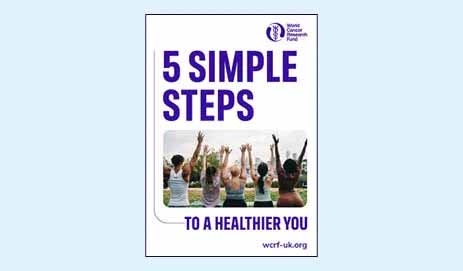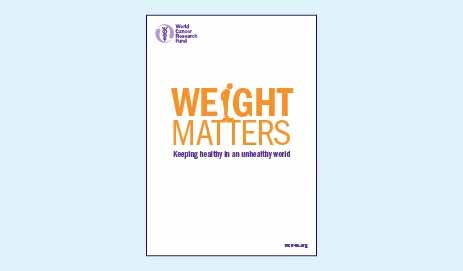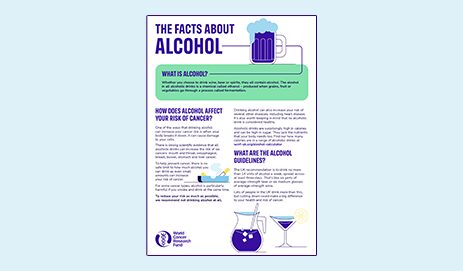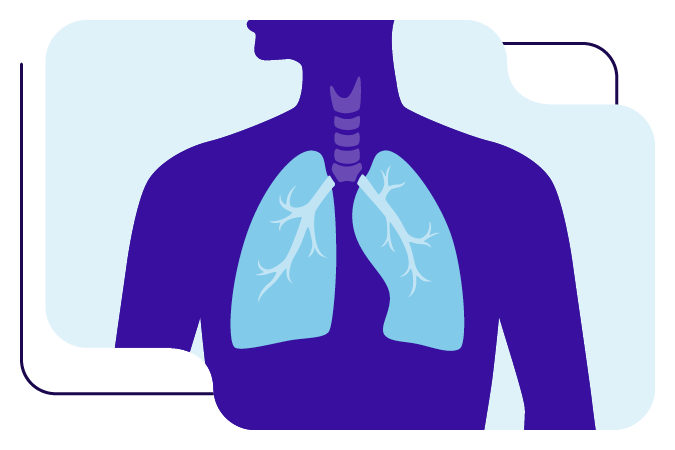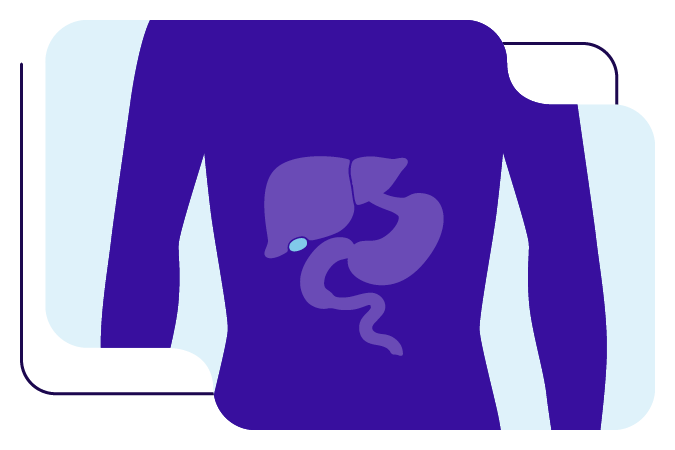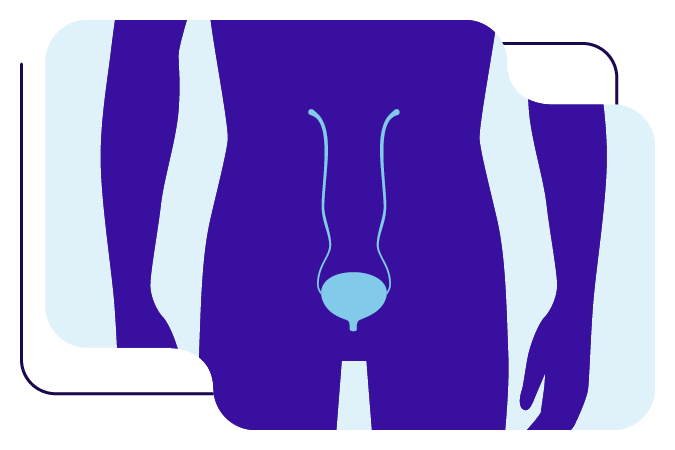Liver cancer
What is liver cancer? Find out how common it is, the causes, and expert advice on how to reduce your risk.
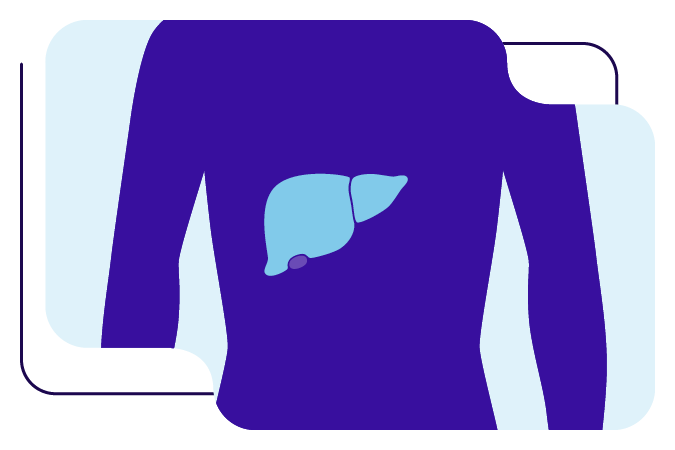
On this page
What is liver cancer?
The liver is your body’s largest internal organ and has many important functions. It helps you to digest proteins and fats, removes toxins (such as alcohol and other cancer-causing substances) from your body, and helps to control blood clotting.
There are different types of liver cancer. The most common type is hepatocellular carcinoma, accounting for 90 per cent of liver cancers.
How common is liver cancer?
Liver cancer is the 16th most common cancer in the UK (2021 data), and the 6th most common in the world (2022 data).
Men
Liver cancer is the 13th most common cancer in men in the UK, and the 5th most common in men globally.
Women
Liver cancer is the 18th most common cancer in women in the UK, and the 9th most common in women globally.
| Region | Cases | Year |
|---|---|---|
| UK | 6,743 | 2021 |
| World | 866,136 | 2022 |
What are the signs and symptoms of liver cancer?
Liver cancer may not have any symptoms, or they may be hard to spot. They can include:
- your skin or the whites of your eyes turning yellow (jaundice)
- a lump in your tummy
- loss of appetite or losing weight without trying to
Find more information on liver cancer symptoms on the NHS website.
Help for you
Our free health guides and cookbooks empower people to reduce their risk of getting cancer. We also help those with a diagnosis cope with treatment, live longer, and enjoy a better quality of life.
Order yours today!
What causes liver cancer?
There are many different things that affect your risk of liver cancer.
Evidence for what can cause liver cancer comes from large population studies (called epidemiology) and biological studies (where scientists look at cells in a laboratory).
If the risk factors below affect you, this doesn’t necessarily mean that you will develop liver cancer.
Alcohol
Drinking alcohol increases the risk of liver cancer.
> Support and information on the links between alcohol and cancer
Weight
People living with overweight or obesity have a higher risk of developing liver cancer.
Disease, infection and infestation
Cirrhosis (scarring of the liver), hepatitis and liver flukes can all cause liver cancer.
Aflatoxins
Eating food contaminated by aflatoxins (toxins produced by certain fungi) increases the risk of liver cancer. Aflatoxins are produced by moulds growing on agricultural crops and are a problem in regions with hot, damp climates and poor storage facilities. Aflatoxin contamination tends to be highest in sub-Saharan Africa and south-east Asia, as well as China, and rates of liver cancer are high in these countries.
Smoking
Smoking increases the risk of liver cancer. In smokers who also have hepatitis B or hepatitis C virus infection, the risk is increased further, and those who smoke as well as consume large amounts of alcohol may also be at increased risk compared with those who do not smoke or drink.
Oral contraceptives
Long-term use of oral contraceptives containing high doses of oestrogen and progesterone increases the risk of liver cancer.
Gender
Men are more likely to develop liver cancer than women.
Age
Older people are more at risk of developing liver cancer.
What protects against liver cancer?
Coffee
We have strong evidence that drinking coffee decreases your risk of liver cancer. However, it’s not as simple as just telling everyone to drink more coffee!
To be able to provide reliable advice on drinking coffee, we need more evidence on things like:
- how much you should drink
- how regularly
- different types of coffee
- decaff vs caffeinated
We also need to be sure that coffee doesn’t have any harmful effects.
Other risk factors
Our Expert Panel of scientists has also looked at other things that may be linked with the risk of liver cancer. The evidence for the risk factors listed below is limited, and we do not recommend that you change your behaviour only on the basis of these risk factors. There is some evidence that:
- consuming fish may decrease the risk of liver cancer.
- being physically active may decrease the risk of liver cancer.
For scientists: full references, pathogenesis and a summary of the mechanisms underpinning our findings on how to prevent liver cancer can be found in our 2018 liver cancer report.
Reduce your risk of liver cancer
Following our Cancer Prevention Recommendations reduces your risk of liver cancer. If you have been diagnosed with cancer, following our Recommendations can reduce the risk of cancer returning.
Don’t drink alcohol
Drinking alcohol is linked to liver cancer – and other cancers. To reduce your risk of cancer, we recommend not drinking alcohol at all.
> Expert tips on reducing how much alcohol you drink
Don’t smoke
You can reduce your risk of liver cancer by not smoking. If you do smoke, giving up smoking will reduce your risk.
In the UK, the NHS stop smoking service can help you quit.
Be a healthy weight
Reaching – and staying at – a healthy weight can reduce your risk of liver cancer, many other cancers, and other diseases.
But it’s not easy. Visit our weight and cancer page for more information about how weight affects the risk of developing cancer, and support to help you stay a healthy weight.
You can also read about how our Policy team encourage governments to make it easier for everyone to be a healthy weight.

Liver cancer survival
Our Living with cancer section can help if you are living with liver cancer.
